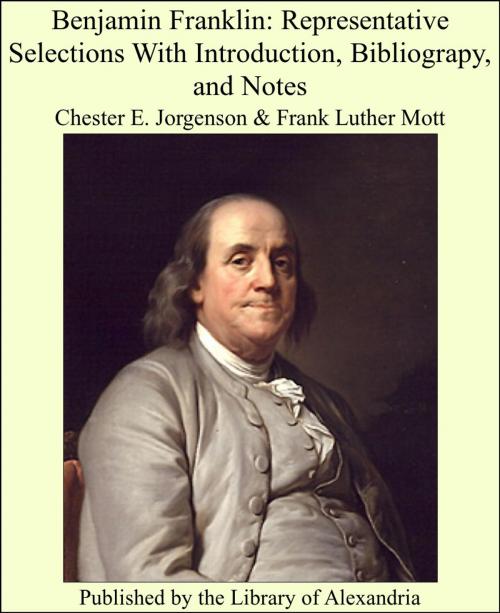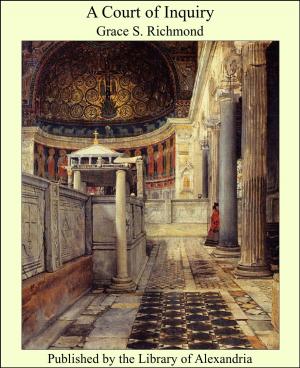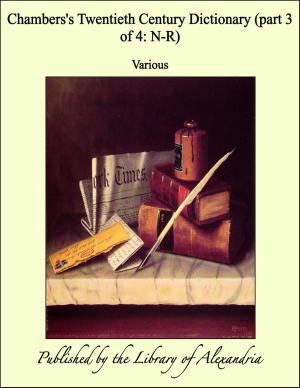Benjamin Franklin: Representative Selections With Introduction, Bibliograpy, and Notes
Nonfiction, Religion & Spirituality, New Age, History, Fiction & Literature| Author: | Chester E. Jorgenson | ISBN: | 9781465538765 |
| Publisher: | Library of Alexandria | Publication: | March 8, 2015 |
| Imprint: | Language: | English |
| Author: | Chester E. Jorgenson |
| ISBN: | 9781465538765 |
| Publisher: | Library of Alexandria |
| Publication: | March 8, 2015 |
| Imprint: | |
| Language: | English |
Benjamin Franklin's reputation in America has been singularly distorted by the neglect of his works Other than his Autobiography and his most utilitarian aphorisms. If America has contented herself with appraising him as "the earliest incarnation of 'David Harum,'" as "the first high-priest of the religion of efficiency," as "the first Rotarian," it may be that this aspect of Franklin is all that an America plagued by growing pains, by peopling and mechanizing three thousand miles of frontier, has been able to see. That facet of Franklin's mind and mien which allowed Carlyle to describe him as "the Father of all Yankees" was appreciated by Sinclair Lewis's George F. Babbitt: "Once in a while I just naturally sit back and size up this Solid American Citizen, with a whale of a lot of satisfaction." But this is not the Franklin of "imperturbable common-sense" honored by Matthew Arnold as "the very incarnation of sanity and clear-sense, a man the most considerable ... whom America has yet produced." Nor is this the Franklin who emerges from his collected works (and the opinions of his notable contemporaries) as an economist, political theorist, educator, journalist, scientific deist, and disinterested scientist. If he wrote little that is narrowly belles-lettres, he need not be ashamed of his voluminous correspondence, in an age which saw the fruition of the epistolary art. The Franklin found in his collected and uncollected writings is, as the following Introduction may suggest, not the Franklin who too commonly is synchronized exclusively with the wisdom and wit of Poor Richard. Since the present interpretation of the growth of Franklin's mind, with stress upon its essential unity in the light of scientific deism, tempered by his debt to Puritanism, classicism, and neoclassicism, may seem somewhat novel, the editors have felt it desirable to document their interpretation with considerable fullness. It is hoped that the reader will withhold judgment as to the validity of this interpretation until the documentary evidence has been fully considered in its genetic significance, and that he will feel able to incline to Other interpretations only in proportion as they can be equally supported by Other evidence. The present interpretation is also supported by the Selections following—the fullest collection hitherto available in one volume—which offer, the editors believe, the essential materials for a reasonable acquaintance with the growth of Franklin's mind, from youth to old age, in its comprehensive interests—educational, literary, journalistic, economic, political, scientific, humanitarian, and religious. With the exception of the selections from the Autobiography, the works are arranged in approximate chronological order, hence inviting a necessarily genetic study of Franklin's mind. The Dissertation on Liberty and Necessity, Pleasure and Pain, never before printed in an edition of Franklin's works or in a book of selections, is here printed from the London edition of 1725, retaining his peculiarities of italics, capitalization, and punctuation. Attention is also drawn to the photographically reproduced complete text of Poor Richard Improved (1753), graciously furnished by Mr. William Smith Mason. The Way to Wealth is from an exact reprint made by Mr. Mason, and with his permission here reproduced. One of the editors is grateful for the privilege of consulting Mr. Mason's magnificent collection of Franklin correspondence (original MSS), especially the Franklin-Galloway and Franklin-Jonathan Shipley (Bishop of St. Asaph) unpublished correspondence. With Mr. Mason's generous permission the editors reproduce fragments of this correspondence in the Introduction. The bulk of the selections have been printed from the latest, standard edition, The Writings of Benjamin Franklin, collected and edited with a Life and Introduction by Albert Henry Smyth (10 vols., 1905-1907). For permission to use this material the editors are grateful to The Macmillan Company, publishers. The editors are indebted to Dr. Max Farrand, Director of the Henry E. Huntington Library, for permission to reprint part of Franklin's MS version of the Autobiography
Benjamin Franklin's reputation in America has been singularly distorted by the neglect of his works Other than his Autobiography and his most utilitarian aphorisms. If America has contented herself with appraising him as "the earliest incarnation of 'David Harum,'" as "the first high-priest of the religion of efficiency," as "the first Rotarian," it may be that this aspect of Franklin is all that an America plagued by growing pains, by peopling and mechanizing three thousand miles of frontier, has been able to see. That facet of Franklin's mind and mien which allowed Carlyle to describe him as "the Father of all Yankees" was appreciated by Sinclair Lewis's George F. Babbitt: "Once in a while I just naturally sit back and size up this Solid American Citizen, with a whale of a lot of satisfaction." But this is not the Franklin of "imperturbable common-sense" honored by Matthew Arnold as "the very incarnation of sanity and clear-sense, a man the most considerable ... whom America has yet produced." Nor is this the Franklin who emerges from his collected works (and the opinions of his notable contemporaries) as an economist, political theorist, educator, journalist, scientific deist, and disinterested scientist. If he wrote little that is narrowly belles-lettres, he need not be ashamed of his voluminous correspondence, in an age which saw the fruition of the epistolary art. The Franklin found in his collected and uncollected writings is, as the following Introduction may suggest, not the Franklin who too commonly is synchronized exclusively with the wisdom and wit of Poor Richard. Since the present interpretation of the growth of Franklin's mind, with stress upon its essential unity in the light of scientific deism, tempered by his debt to Puritanism, classicism, and neoclassicism, may seem somewhat novel, the editors have felt it desirable to document their interpretation with considerable fullness. It is hoped that the reader will withhold judgment as to the validity of this interpretation until the documentary evidence has been fully considered in its genetic significance, and that he will feel able to incline to Other interpretations only in proportion as they can be equally supported by Other evidence. The present interpretation is also supported by the Selections following—the fullest collection hitherto available in one volume—which offer, the editors believe, the essential materials for a reasonable acquaintance with the growth of Franklin's mind, from youth to old age, in its comprehensive interests—educational, literary, journalistic, economic, political, scientific, humanitarian, and religious. With the exception of the selections from the Autobiography, the works are arranged in approximate chronological order, hence inviting a necessarily genetic study of Franklin's mind. The Dissertation on Liberty and Necessity, Pleasure and Pain, never before printed in an edition of Franklin's works or in a book of selections, is here printed from the London edition of 1725, retaining his peculiarities of italics, capitalization, and punctuation. Attention is also drawn to the photographically reproduced complete text of Poor Richard Improved (1753), graciously furnished by Mr. William Smith Mason. The Way to Wealth is from an exact reprint made by Mr. Mason, and with his permission here reproduced. One of the editors is grateful for the privilege of consulting Mr. Mason's magnificent collection of Franklin correspondence (original MSS), especially the Franklin-Galloway and Franklin-Jonathan Shipley (Bishop of St. Asaph) unpublished correspondence. With Mr. Mason's generous permission the editors reproduce fragments of this correspondence in the Introduction. The bulk of the selections have been printed from the latest, standard edition, The Writings of Benjamin Franklin, collected and edited with a Life and Introduction by Albert Henry Smyth (10 vols., 1905-1907). For permission to use this material the editors are grateful to The Macmillan Company, publishers. The editors are indebted to Dr. Max Farrand, Director of the Henry E. Huntington Library, for permission to reprint part of Franklin's MS version of the Autobiography















